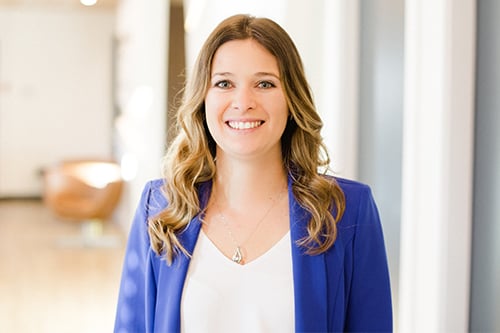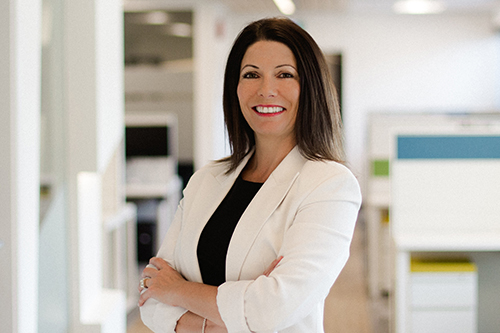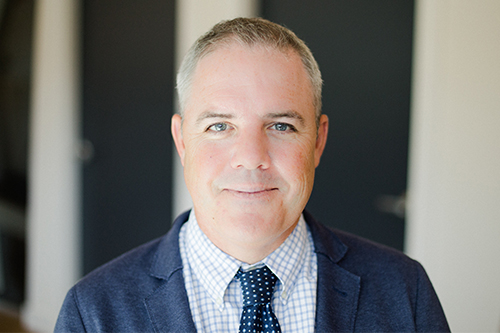

The province of British Columbia has officially moved into the third phase of its reopening strategy, with non-essential travel within the province now allowed as well as hotels, resorts, RV parks and other accommodations getting the green light to resume operations.
As with many other brick-and-mortar businesses, insurance brokerages have a lot to think about as they reopen their own doors during this time, including the mental health and well-being of their employees.
“We started off extremely cautious,” said Emily Panzenboeck (pictured above), human resources specialist at Megson FitzPatrick. “We sent out a return to office survey to our team gauging how they felt about returning to the office. Our main concern when we originally sent that survey out was that people were feeling isolated at home.”
The pandemic has put many people in difficult situations. Some have had to juggle taking care of children alongside day-to-day work while others who were living alone felt particularly isolated during the shutdowns. The eagerness to come back to work is palpable with 12% of Megson FitzPatrick’s staff voluntarily asking to return to the office, according to Panzenboeck.
For those who are coming back, their workspaces will look a lot different. The brokerage has so far kept its offices at approximately 50% capacity to abide by social distancing measures, and has split returning team members between its three retail locations to help with spacing out individuals. Other protocols that have been implemented include installing plexiglass at reception counters and all desks that will be serving clients, permitting a maximum of three clients into the office at one time, and putting up maximum occupancy signs in smaller common areas, such as lunchrooms, boardrooms, and breakout rooms.
“We have also set up sanitization stations and put in sick protocols for employees,” said Panzenboeck, adding that signs on the front doors to the retail locations recommend that clients who are sick, have travelled in the past 14 days or have knowingly come into contact with someone who has COVID-19 should return in two weeks’ time.
The brokerage’s teams have meanwhile been supplied with various types of personal protective equipment like masks, gloves, and personal hand sanitizers, and anything that is a high-touch use item like POS machines or Xerox machines will be sanitized after each use. Cleaning staff will now be coming into the offices every evening and a deeper clean will be done each week. Arrows on the floor will also help control the direction of traffic so that, wherever possible, people aren’t passing in the hallways.
This detailed list of protocols that are being implemented by Megson FitzPatrick reveal the short-term ways that brokerages are having to adapt to the new normal brought on by the coronavirus. There will, however, also likely be longer term impacts on the broking industry as a result of the pandemic.
“We’re going to be taking a closer look at our retail footprint,” explained Laura Bolster (pictured below), president and COO of the brokerage. “Is it necessary to have brick-and-mortar locations or can we make work-from-home work, and still retain our culture that we have and the engagement with our team?”

What insureds will be focused on in terms of their risk will also continue to evolve now that there’s a new threat turning everyone’s heads.
“I think it’s going to change the way that we all think about and approach risk to some extent,” said Luke Mills (pictured below), commercial account executive, risk advisor and partner at Megson FitzPatrick. While cyber and natural catastrophes have traditionally been a few of the top risks in the past, the pandemic risk has now shot up to the top of companies’ lists as their key concern going forward.

Mills added that the challenges and limitations of insurance will likewise be a focus for the industry and its clients.
“I’ll be curious to see what insurance products may come out of this,” he said. “[We’ll be] helping our clients in elevating the discussion around that type of risk and how we can prepare, if possible, through the purchase of insurance, but more importantly through how we manage our day-to-day operations and how we communicate [with them].”
